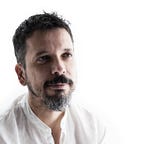Meeting Piergiorgio Piras: A Manager’s Journey of Growth and Transformation through Mentoring
A series of conversations with our mentors to understand how mentoring is transforming their work.
I’m honoured to start this new article series with a conversation with Piergiorgio Piras, HR Plant Manager at the Ermenegildo Zegna Group. In 2021, Piergiorgio completed our advanced course for acquiring and refining professional mentoring skills. A little over a year after completing the course, I had a rich conversation with Piergiorgio to explore the impact that acquiring mentoring skills and tools has had on his role as a manager and leader in his company.
Piergiorgio approached the course with a clear goal; his objective wasn’t to become a professional mentor but to evolve as a person and a manager.
The Power of Self-Awareness and Growth
The most significant advantage [of the program] was not so much becoming a professional mentor, as I have directed my learning path in a precise direction, which was to grow as a person. In these terms, this course has helped me tremendously become aware of the tools I already had. I have learned to make the best use of the skills that we all have in a more effective, efficient, and productive way. The area where I have seen the most results is myself and my own growth. In a way, I have learned to be my own mentor, observe myself more accurately, and measure my progress to improve. The work I’ve been doing on myself is helping me to bring out the best in the people who work with me.
Two words stood out for me from Piergiorgio’s sharing. One is self-awareness of oneself and one’s abilities, which is the first step towards expressing one’s potential. The second one is the word growth. Mentoring is more than learning new skills; it is fundamental to personal and professional growth. These two ingredients are necessary for the process that starts from learning (knowing) and, through conscious practice (doing), leads us to become (being) better people and professionals.
Becoming a Role Model through Self-Awareness and Growth
Working on self-awareness and growth, as Piergiorgio did, is the key to becoming an inspirational role model for others. This is another fundamental aspect of mentoring. It is no coincidence that the first competence of the EMCC’s Global Competence Framework is “Understanding Self”, meaning being aware of our own values, beliefs and behaviours, recognising how these affect our practice and using this self-awareness to manage our effectiveness in meeting the client’s, and where relevant, the sponsor’s objectives. The second one is “Commitment to Self-Development”.
Drawing Out the Best: The Role of Active Listening
However, drawing out the best in others is more than just setting an example, as Piergiorgio tells us again.
If I was previously content with feedback or a result presented by collaborators, I have now learned to bring out something more from others. I don’t settle on the first answer; I work with them to transform it into a stimulus that leads to better results, creating a significant impact.
Through mentoring skills and tools, the manager can “enable insight and learning” in others while always staying focused on “outcome and action”, two other competencies in the framework.
Among the skills that he has developed, Piergiorgio experienced active listening as being particularly effective.
We all can listen at a basic level. Through mentoring, however, I have learned to listen more effectively and to use whatever my interlocutor gives me to expand it and open up the conversation even more, bringing out better results.
One of the benefits most often reported by managers who train in mentoring is the improvement in the quality of their conversations. They particularly enjoy an increased ability to listen actively and expand the conversation by transforming it into an opportunity for mutual learning and growth.
Becoming a ManagerMentor: A Virtuous Circle of Learning and Growth
Coming full circle, this brings the ManagerMentor into a virtuous circle of learning and growth because, as Piergiorgio himself reminds us with his experience, stimulating and supporting the learning and growth of others requires actively stepping forward.
One of my main takeaways from the course is the word stimulus. Having a role that should not be passive. You can’t have a passive stance if you want to stimulate someone. Your role must evolve into action if your objective is to encourage others. Any stimulus implies an active role. You cannot claim to stimulate something by remaining still and hoping for inertia to do the job. The constant search for motivation to achieve something more is another thing that has stayed with me from the course.
The Transformation of a Manager: From Skills to Attitude
Besides learning and deepening skills and tools, what makes the difference for managers who embrace the art of mentoring is the transformation in their attitude and approach. That is why we always talk about becoming a ManagerMentor; it is not only about being able to do things but also about who we are and how we show up in our roles. And sometimes, the changes are so profound that it takes a while to become fully aware of them.
I received several stimuli along the way. However, I interiorised some so much that I hardly noticed my improvement. Sometimes, I only realise it at a later stage; while I’m in the moment, I don’t realise I’ve done something I wouldn’t have done before.
Thanks to Piergiorgio for his willingness to share his experience and his determination to continue improving himself, becoming a gift to others.
If you want to learn more about ManagerMentor and our mentoring training programmes, visit our Academy website or email us at info@mentorlabgroup.com.
